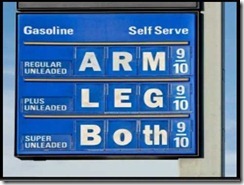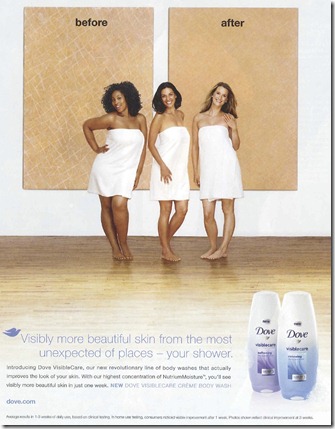"I’m concerned about higher gasoline prices. The government has the responsibility to make sure that we watch very carefully and investigate possible price-gouging, and we will do just that." — George W. Bush, 4/17/2006
"We are going to make sure that nobody is taking advantage of American consumers for their own short-term gain." – Barack Obama, 4/20/2011
 Whenever the price of gas spikes the call goes out from Washington to investigate price gouging. Unfortunately, this leads to one of the great intellectual challenges of capitalism: Defining price gouging. Problem is no one can separate “taking advantage of consumers for short-term gain” from what is usually called profit taking.
Whenever the price of gas spikes the call goes out from Washington to investigate price gouging. Unfortunately, this leads to one of the great intellectual challenges of capitalism: Defining price gouging. Problem is no one can separate “taking advantage of consumers for short-term gain” from what is usually called profit taking.
To quote Collateral Damage Sr.: "In a society that has a free market fetish, if not a religion, what is price gouging? Is nine percent profit gouging the price? Or 15 or 50 percent? At what price point does profit change into gouged profit?"
Well, here are a few samples from people who have tried to split that particular hair.
First, former Rep. Bart Stupak, (D-Mich), from 2006:
If you take a look at it, from September 2004 until September 2005, refineries have increased their prices 255 percent. Isn’t that gouging?
I mean, I think we all know what gouging is. What we need is a federal standard so we can hold the oil companies’ feet to the fire and make sure we know what factor goes into every gallon of gasoline, so at least the American public will have some transparency and get a fair shake on what goes into a price of a gallon of gasoline.”
Next up:
New York State law prohibits price gouging during a state of emergency. The law specifically provides that, in order to prevent any party from taking unfair advantage of consumers during an abnormal disruption of the market, the charging of "unconscionably excessive" prices is prohibited.”
I like that one the best because it is by the former Attorney General/Governor of New York, Eliot Spitzer. Did he wonder about price gouging as he paid all those ladies of negotiable morality?
And finally this one from the very accurately named blog, Neutral Source:
Price gouging, like porn, is in the eye of the beholder. One thing everyone agrees on about it is that it is always committed by someone else.
For businesses price gouging is "when my competitor gets away with charging more than I thought to charge."
For the general public, price gouging is when a company that I don’t work for or have investments in is charging me too much. Profits are when my company is making enough money to not lay me off.
Actually addressing this problem would involve fundamental changes in our system that are much needed but which no one is willing to actually contemplate. Instead we will get more of this Kabuki Theater. The next act will come when the oil companies declare their quarterly earnings. This will be followed by bi-partisan denunciation of their “excessive profits” and a number of bills will be proposed which will go nowhere. Then the oil companies will attempt some sort of PR move to show that they are really nice guys and that will be that.























